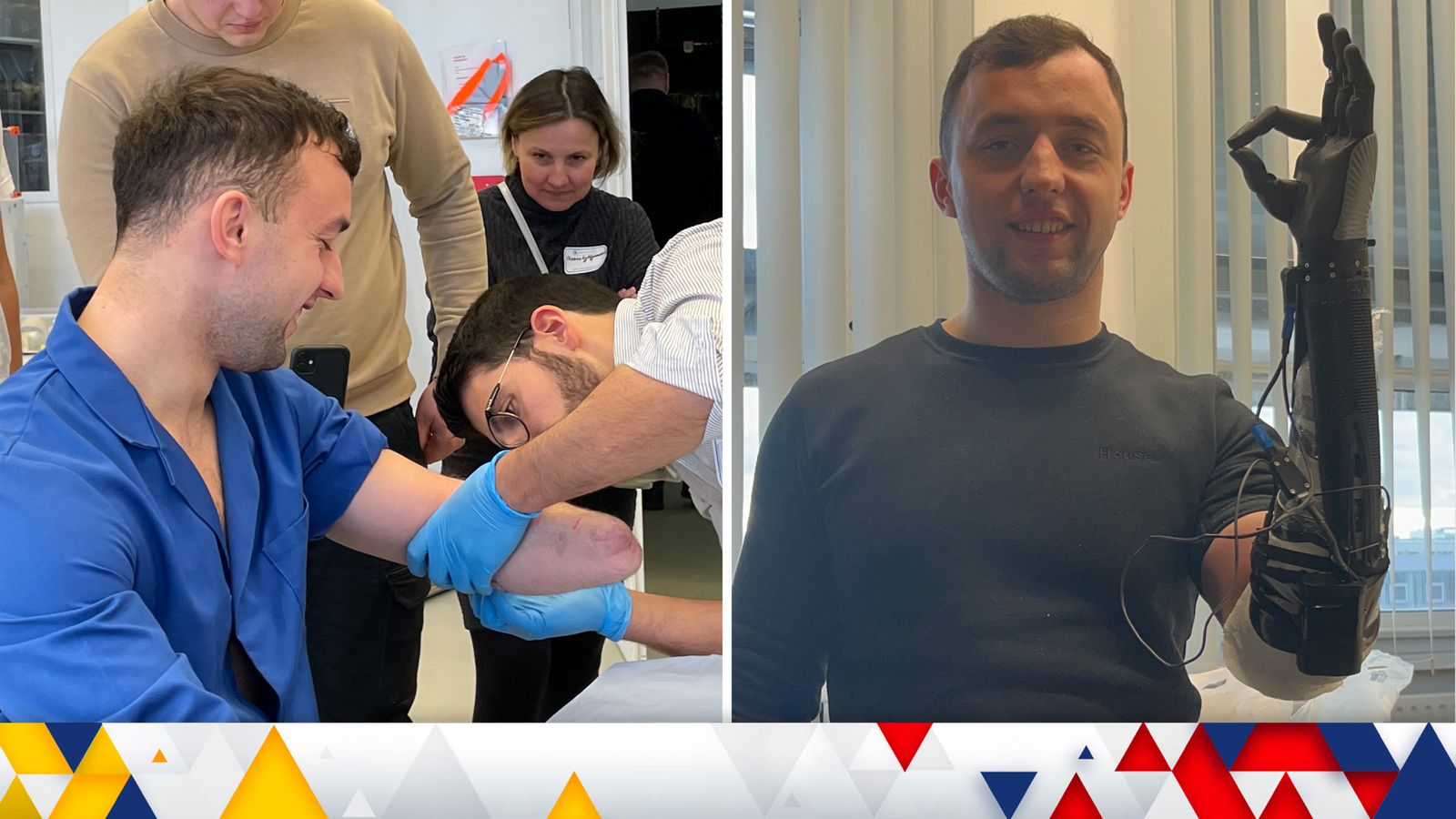Two Ukrainian soldiers who had amputations after being wounded by landmines are being fitted with state-of-the-art bionic arms made in the UK.
They are the first war veterans to be fitted with the new Hero Arm – a 3D-printed prosthesis made by Bristol-based tech company Open Bionics.
Andrii Gidzun and Vitalii Ivashchuk tried out the arm this week in Munich. It has moveable fingers and thumbs that allow them to pinch and grasp objects. It’s controlled by sensors that are activated by muscles in the forearm.
Death toll in apartment strike rises – Ukraine war live updates
Please use Chrome browser for a more accessible video player
Custom-made prostheses will now be made for the two men on 3D printers and fitted next month.
Vitalii, 24, described testing the Hero Arm as a “very cool feeling”, adding: “I am pleased that I have such an opportunity to get such a functional prosthesis. I did not even hope for it.
“When the electrodes were applied and I had the opportunity to test this prosthesis, I just enjoyed it. I was pleased, to put it mildly.”
Ukraine war: Boxing coach filmed celebrating his daughter’s birthday – before he was killed in Dnipro missile strike that hit apartment
Ukraine’s first lady Olena Zelenska criticises world leaders at Davos: ‘Insult to mankind to have mass starvation’
Ukraine war: Former Wagner Group member seeks asylum in Norway after fleeing Russia
The men’s prostheses were funded by Mastercard, which is supporting the charitable foundation Superhumans to raise £33m to build a specialist hospital in the Ukrainian city of Lviv.
The Superhumans Centre will work with Open Bionics to provide prostheses, rehabilitation and counselling to civilians and soldiers who have lost limbs as a result of the war.
The First Lady of Ukraine, Olena Zelenska, is on the centre’s board.
Read more:
Ukraine war likely to ‘go on for some time’, US secretary of state warns
‘Insult to mankind’: Ukrainian first lady criticises leaders at Davos
Please use Chrome browser for a more accessible video player
The Ukraine government estimates that at least 62,000 square miles of its territory are littered with landmines and other unexploded weapons.
Joel Gibbard, who headed up the Open Bionics team fitting the prostheses, told Sky News that civilian casualties include children, who are often unaware of the risks.
He said: “We’ve heard of circumstances where they’ve been picking them up and obviously then losing limbs. So when we designed the Hero Arm, we decided to try and make it appropriate for children as young as eight years old.
“It’s not yet at the level technologically where it could be a replacement for a human hand. We designed it for activities of daily living.
“We’re aiming for it to be able to hold objects of different sizes, to pick things up, hold a cup of coffee, tie shoelaces, brush teeth – these are the kind of things that we focused on in the design.”
Please use Chrome browser for a more accessible video player
Olga Rudneva, the chief executive of Superhumans, said: “The philosophy of Superhumans is that our patients receive the best medical service at home, next to their families, in their own language.
“Once the Superhuman centre opens, it will take up to 3,000 patients each year. All services will be free for patients thanks to partners and donors.”









